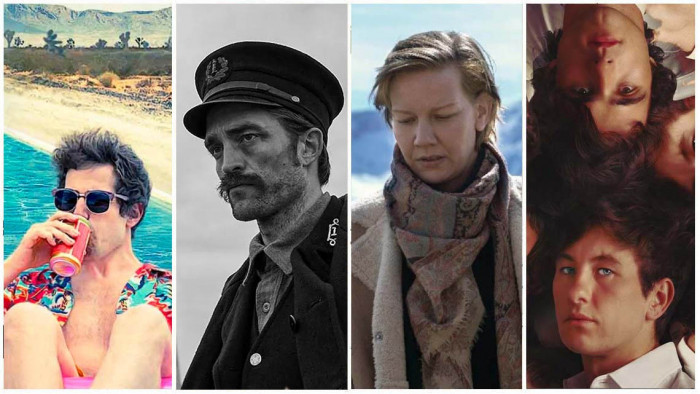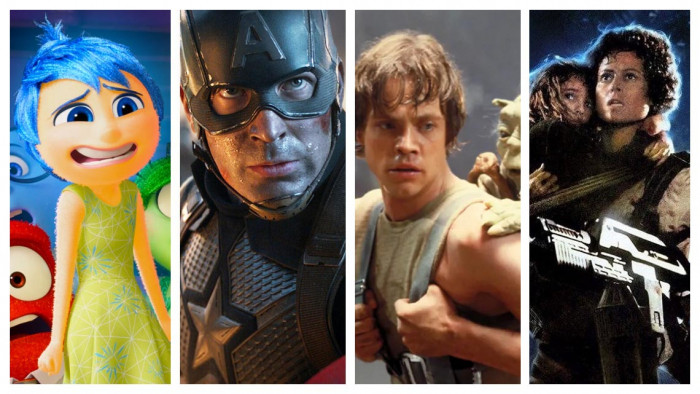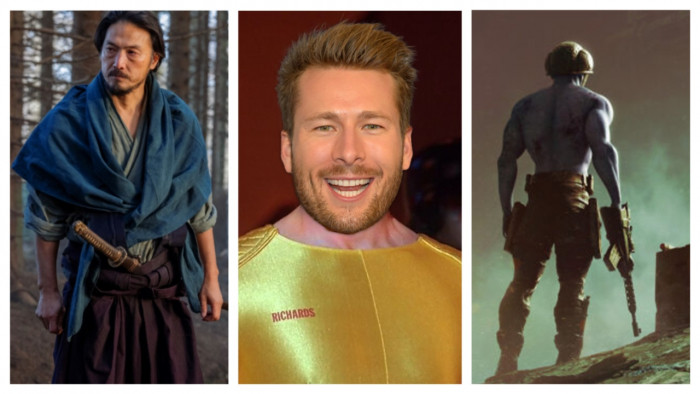Following James Gandolfini’s death, ShortList’s Martin Robinson looks at how the man, and his iconic role as Tony Soprano, changed a generation...
Tony Soprano died in 2007, and again last week. That James Gandolfini’s passing in Rome caused such devastation among so many is a testament to that character and his talent. Moving tributes from his Hollywood friends flooded in, but for the rest of us – who only knew him from the big and small screens – the outpouring of emotion was surprising. We’re mourning the man, and we’re mourning Tony Soprano. Few actors have ever put so much of themselves into a role.
For six seasons, we had Tony in our front rooms and, such was Gandolfini’s total inhabitation of the Mafia boss, we felt we knew him too. Gandolfini once said, “In most of the ways that count, I have to say, yeah – the guy is me.” As such, for those of us who love The Sopranos, it feels like we’ve lost a friend.
Man of the Times
Tony was the most iconic TV character of our era, but more than that – he defined a generation of men. He was a Mafia boss and, as the seasons wore on, an increasingly psychopathic killer, but we related to him. The brilliance of The Sopranos was that Tony was an everyman being torn apart by the demands of the modern world.
The show was an epic, Shakespearean portrayal of an identity crisis, a struggle to define yourself as a father, a husband, a boss, a son. Our desires, joys, self-destructive urges and anxieties were writ large by Gandolfini on screen.
His performance wasn’t just a watershed moment for television, it was as viscerally life-changing as watching Marlon Brando in The Wild One, James Dean in Rebel Without A Cause or Robert De Niro in Taxi Driver. Like those greats, Gandolfini had a volatile inner fire, allowing him to make a risk-taking leap into the mind of a deeply troubled man.
Gandolfini said of the toll this took, “I think some of his flaws are my flaws. And so you try to get away from them, and then you kind of get pulled in a little bit by playing them.” Unlike those film greats, Gandolfini was Tony for 86 episodes in 8 years. It’s an astonishing achievement.
As David Chase, creator of The Sopranos, said in a statement when the news hit, “A great deal of genius resided in those sad eyes. I remember telling him many
times: ‘You don’t get it. You’re like Mozart.’”
Italian American
Gandolfini wasn’t supposed to be an actor. The son of Italian immigrants – a janitor and a dinner lady – he was a smart working class New Jersey boy, with a degree in Communications Studies, who drifted between jobs.
He worked in Manhattan bars by night – including managing a strip club called Private Eyes (“It was educational,” he said) – and drove a delivery truck by day. As he told Vanity Fair last year, “I dabbled a little bit in acting in high school then I forgot about it completely. And then at about 25 I went to a class. I don’t think anybody in my family thought it was an intelligent choice… I think they were just happy I was doing something.”
He made a splash in a theatre production of A Streetcar Named Desire, like Brando before him, but his first film role in low budget horror Shock! Shock! Shock! (1987) was an inglorious start. His big break didn’t come until 1993, with an unforgettable appearance in True Romance (see John Niven’s piece, left). Still, for a man with his tough guy looks, a career as a supporting character actor seemed to be where he was headed. However, Fate was working its cogs.
The Sopranos hits
David Chase had an idea for a film about a mob boss in therapy, which he developed into a TV show with HBO. The Sopranos changed the face of TV when it hit in 1999. It launched HBO as a commissioning studio, paving the way for The Wire, Breaking Bad, Mad Men (whose creator Matthew Weiner worked on The Sopranos), Game Of Thrones, The Killing and everything we enjoy today. It began the era of TV shows as grand artistic statements.
Gandolfini auditioned for Tony, along with most of the industry (including Steven Van Zandt from the E Street Band, who played Silvio) and, although Chase said “when Jim Gandolfini walked in, that was it”, the actor was shocked, “I thought they would hire some good-looking guy…some Italian George Clooney.”
It wouldn’t have worked. Gandolfini’s hangdog appearance brought an authenticity to Tony. This was no image of perfection. The flawed antihero was not entirely new, but the dark complexity of a lead character reached new depths with The Sopranos. Now, we’re empathising with serial killers on TV every night.
Millennial men
Crucially, The Sopranos nailed how millennial masculinity was turning. It caught a moment when metrosexuality started to become the standard; the focus on the self, the admittance of neurosis. It’s almost laughable in our current culture of confession but there was a time when men felt they had to hide their feelings.
Tony always lamented the loss of the Gary Cooper strong and silent type. His nephew Christopher was a drug-addict with dreams of fame. His son AJ was a hapless, vulnerable kid who reminded him of his own foibles, and often bore the brunt of Tony’s rage.
It showed the difficulty of bringing up young people who have different generational values, but also mirrored how men of Tony’s generation started to stray from the path of development set down by their war-scarred fathers.
As Tony started opening up, even crying, in his therapy sessions with Dr Melfi, the world opened up for all men. Gandolfini said when the show began, “Showing emotion has become a bad thing. Like there’s something wrong with you [if] you’re really in love or really angry and you show it. Like if you feel these powerful emotions and express them... then you must be someone who needs therapy, or Prozac.”
Suddenly, men admitting their weaknesses was in. Male depression could be talked about. These were important cultural steps.
David Chase said, “They related to that guy, they saw who he was. Part of it has to be because of James Gandolfini and the magic he worked. There’s something about him that’s very caring. There’s a sadness there.”
Alpha actor
The show never shied away from the murderous ways of its central ‘waste management consultant’, but it’s remarkable how much warmth Gandolfini brought to the role.
In his hands, Tony shifted from a thrilling depiction of Alpha maleness to your average man struggling with a family gripe. Matthew Weiner told Vanity Fair, “The casting of Gandolfini is very important, because he allows us – because of his natural charisma – to enjoy those fantasises of power we wish we had. We love Tony, because he has all of our animal appetites. Everyone would love to walk into a room and pick the biggest sandwich, and take the best chair. and have sex with the best-looking women. But at home he has the same life we do.”
Tony expressed every facet of masculinity – from our capacity for violence to our need to protect our families to the little boys we still are.
He was a son messed up by his parents. He was a boss trying to run an organisation. He was often a big baby eating ice cream in front of the TV and throwing tantrums.
David Chase put it this way: “As cynical, bullying, vulgar and overbearing as he could be, there’s still a little boy in there. He did a lot of mean things, and he enjoyed vengeance, but he didn’t seem mean.”
We idolise great actors, because they put themselves into their roles. Brando, Dean and De Niro at their peaks were living their characters. As Tony, Gandolfini clearly brought his own humanity, brutality and emotions to the fore. You can only fake so much.
Indeed Gandolfini had studied the Meisner technique – an off-shoot of the Stanislavski school of the Method. It encouraged using your emotional life, and Gandolfini told Inside The Actor’s Studio he would hit himself on the head, or stay up all night to prepare. Playing Tony eventually took its toll.
The man
Stories about Gandolfini’s drink and drug struggles, and frequent disappearances from sets circulated as the seasons ran on. When the show ended in 2007, he said playing Tony was “wearing” and admitted: “It’s a relief to let him go.”
He was as complex and contradictory as Tony. It’s a testament to how he had to overcome such struggles that so many people who knew him talked about his big heart. He famously visited Ground Zero after 9/11 to support the first fire fighters on the scene. He recently made two documentaries about troops returning from Iraq. A happier life, with a second marriage and growing career, was developing for him. Fifty-one is no age to check out. He’ll be remembered as a force of nature, who acted with total commitment. Edie Falco, who played his wife Carmela Soprano said last year, “He never knew how good he was... I knew almost nothing about his personal life and he didn’t know anything about me. He was just Tony. He was fully inhabiting the part of this man I was married to. It was thrilling. Usually, if you look deep enough when you’re doing a scene with somebody, you can see the actor, and I never saw anybody but Tony. Never.”
A standing ovation for James Gandolfini, please. What an actor, what an inspiration, what a life.
Latest
Related Reviews and Shortlists


The 10 best war movies of the 21st century









